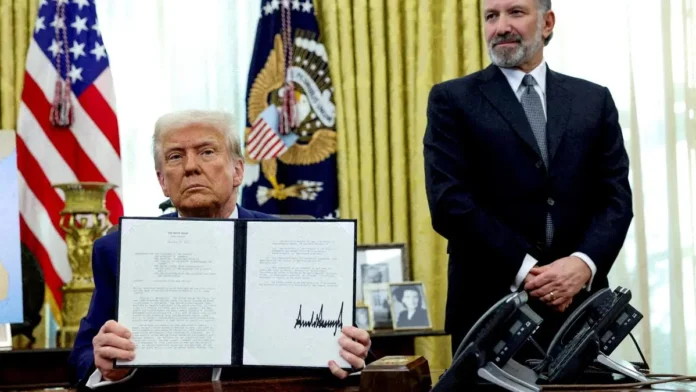The recent news of newly imposed tariffs has caused quite a stir in the global market. With rates ranging from 10% to as high as 49%, many are wondering what this means for the future of international trade. However, these tariffs should not be seen as a negative development, as they are a necessary step towards creating a fair and balanced trading environment for all countries involved.
Let’s take a closer look at the notable rates that have been imposed – 34% for China, 46% for Vietnam, and 36% for Thailand. These rates have been carefully calculated to address the trade imbalances that have been a growing concern for many years. In particular, the high rates for China reflect the country’s significant trade surplus and its unfair trade practices that have had a detrimental effect on other countries’ economies.
But why are tariffs necessary? The answer is simple – to protect domestic industries and promote fair competition. By imposing tariffs on imported goods, countries can protect their own industries from being unfairly undercut by foreign competition. This, in turn, promotes the growth of domestic industries and creates job opportunities for the local population.
Moreover, these tariffs are not meant to be permanent measures. They are designed to encourage countries to reevaluate their trade policies and to promote a more balanced trading relationship. The hope is that by imposing these tariffs, countries will be motivated to review their trade practices and make necessary changes for a more equitable and mutually beneficial trade environment.
In addition to promoting fair competition, these tariffs also have a significant impact on the global economy. By addressing trade imbalances, countries can reduce their reliance on imports and strengthen their own domestic economies. This can lead to a more stable global economy and reduce the risk of economic crises in the future.
Furthermore, these tariffs also serve as a means of negotiation between countries. By imposing tariffs, countries are sending a clear message that they are serious about addressing trade imbalances and are willing to take action to protect their own industries. This can open up channels for dialogue and negotiations between countries, ultimately leading to a more harmonious and cooperative trade relationship.
It is also important to note that these tariffs are not targeting any specific country. They are a means of addressing overall trade imbalances and promoting fair trade practices. By imposing tariffs on multiple countries, the impact is spread out and no single country is being unfairly targeted.
In conclusion, the newly imposed tariffs should not be seen as a negative development, but rather as a necessary step towards creating a fair and balanced trading environment. These tariffs promote fair competition, protect domestic industries, and serve as a means of negotiation between countries. It is a move towards a more equitable and mutually beneficial global trade system. As countries reevaluate their trade practices and work towards a more balanced trade relationship, we can look forward to a brighter and more prosperous future for all.


